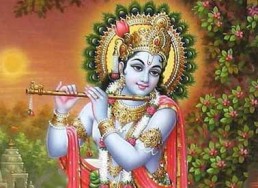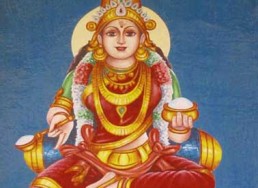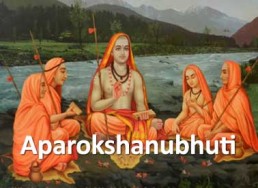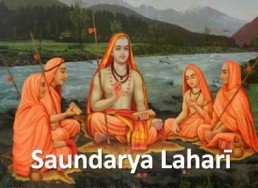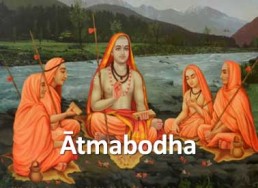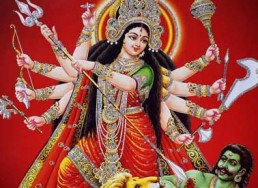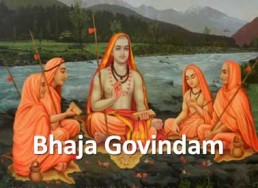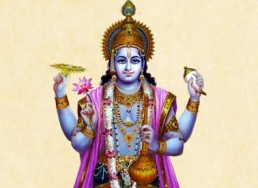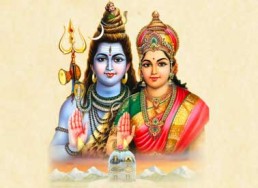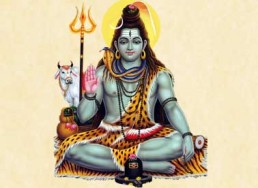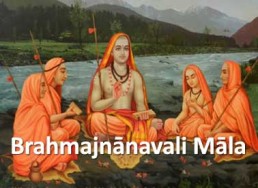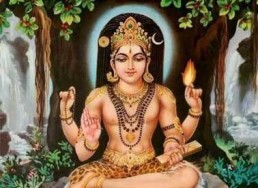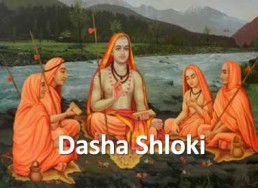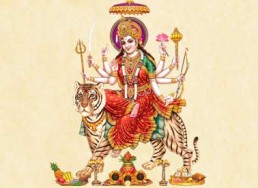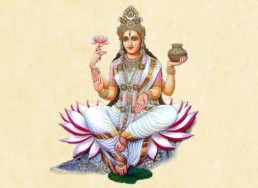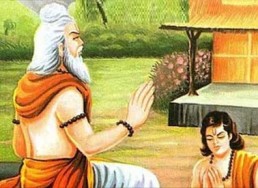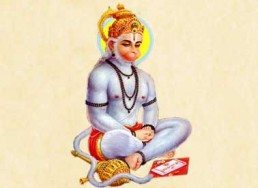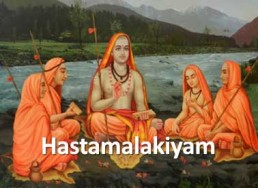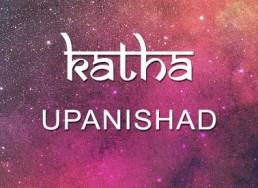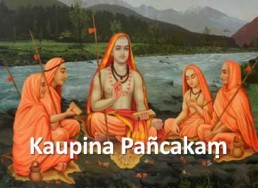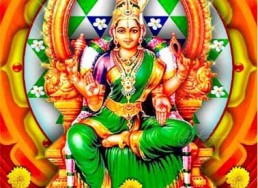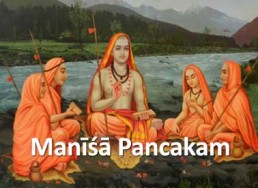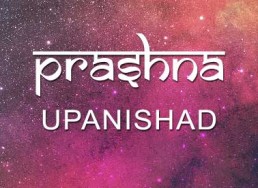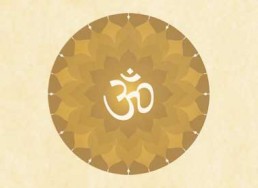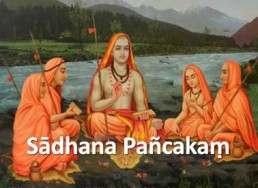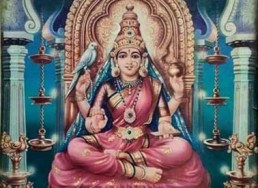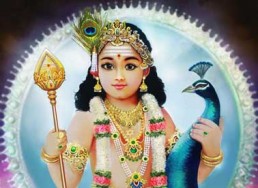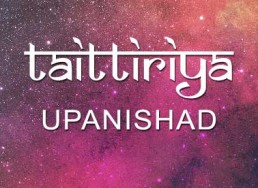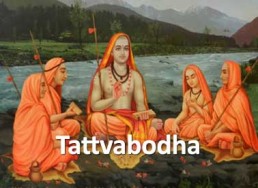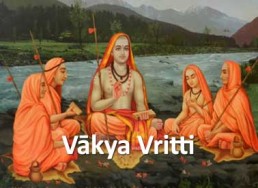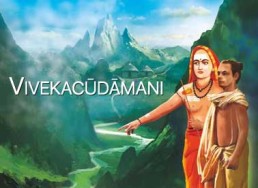Atmabodha Introduction
Atmabodha, meaning Self-knowledge or Self-awareness, is an exceptionally lucid and readable work of Shankaracharya. Consisting of sixty-eight verses or shlokas, it is in a sense a simple summary of his entire Vedantic structure of thought, intended, it would seem, as a basic primer for his students and followers. The text follows a clearly elaborated doctrine, starting with knowledge as a key to liberation, the nautre of the Atman within us, the assertion of the pervasive and attribute-less nature of Brahman, and the path towards the realisation of the complete identity between the Atman and Brahman.
The very name of the book ‘Self-Knowledge’ suggests its perennial interest and universal value. Self-Knowledge is vital. All other forms of knowledge are of secondary importance; for a man’s action, feeling, reasoning, and thinking are dependent upon his idea of the Self. His view of life will be either materialistic or spiritual according to his conception of himself. Therefore it behooves everyone to cultivate Self-Knowledge at all times. Self-Knowledge serves the practical purpose of destroying pain and suffering (which are always caused by ignorance of the Self) and also the positive end of helping everyone enjoy supreme peace and blessedness here and always.
Atmabodha All Verses
।।श्रीः।।
।।आत्मबोधः।।
तपोभिः क्षीणपापानां शान्तानां वीतरागिणाम्।
मुमुक्षूणामपेक्ष्योऽयमात्मबोधो विधीयते।।1।।
..Ātmabodhaḥ..
Tapobhiḥ kṣīṇapāpānāṃ śāntānāṃ vītarāgiṇām.
Mumukṣūṇāmapekṣyo’yamātmabodho vidhīyate..1..
बोधोऽन्यसाधनेभ्यो हि साक्षान्मोक्षैकसाधनम्।
पाकस्य वह्निवज्ज्ञानं विना मोक्षो न सिध्यति।।2।।
Pākasya vahnivajjñānaṃ vinā mokṣo na sidhyati..2..
विद्याविद्यां निहन्त्येव तेजस्तिमिरसंघवत्।।3।।
Vidyāvidyāṃ nihantyeva tejastimirasaṃghavat..3..
स्वयं प्रकाशते ह्यात्मा मेघापायेंऽशुमानिव।।4।।
Svayaṃ prakāśate hyātmā meghāpāyeṃ’śumāniva..4..
कृत्वा ज्ञानं स्वयं नश्येज्जलं कतकरेणुवत्।।5।।
Kṛtvā jñānaṃ svayaṃ naśyejjalaṃ katakareṇuvat..5..
संसारः स्वप्नतुल्यो हि रागद्वेषादिसंकुलः।
स्वकाले सत्यवद्भाति प्रबोधे सत्यसद्भवेत्।।6।।
Svakāle satyavadbhāti prabodhe satyasadbhavet..6..
यावन्न ज्ञायते ब्रह्म सर्वाधिष्ठानमद्वयम्।।7।।
Yāvanna jñāyate brahma sarvādhiṣṭhānamadvayam..7..
सर्गस्थितिलयान्यान्ति बुद्बुदानीव वारिणि।।8।।
Sargasthitilayānyānti budbudānīva vāriṇi..8..
व्यक्तयो विविधाः सर्वा हाटके कटकादिवत्।।9।।
Vyaktayo vividhāḥ sarvā hāṭake kaṭakādivat..9..
यथाकाशो हृषीकेशो नानोपाधिगतो विभुः।
तद्भेदाद्भिन्नवद्भाति तन्नाशे केवलो भवेत्।।10।।
Tadbhedādbhinnavadbhāti tannāśe kevalo bhavet..10..
आत्मन्यारोपितास्तोये रसवर्णादिभेदवत्।।11।।
Ātmanyāropitāstoye rasavarṇādibhedavat..11..
शरीरं सुखदुःखानां भोगायतनमुच्यते।।12।।
Śarīraṃ sukhaduḥkhānāṃ bhogāyatanamucyate..12..
अपञ्चीकृतभूतोत्थं सूक्ष्माङ्गं भोगसाधनम्।।13।।
Apañcīkṛtabhūtotthaṃ sūkṣmāṅgaṃ bhogasādhanam..13..
उपाधित्रितयादन्यमात्मानमवधारयेत्।।14।।
Upādhitritayādanyamātmānamavadhārayet..14..
पञ्चकोशादियोगेन तत्तन्मय इव स्थितः।
शुद्धात्मा नीलवस्त्रादियोगेन स्फटिको यथा।।15।।
Śuddhātmā nīlavastrādiyogena sphaṭiko yathā..15..
आत्मानमान्तरं शुद्धं विविञ्च्यात्तण्डुलं यथा।।16।।
Ātmānamāntaraṃ śuddhaṃ viviñcyāttaṇḍulaṃ yathā..16..
बुद्धावेवावभासेत स्वच्छेषु प्रतिबिम्बवत्।।17।।
Buddhāvevāvabhāseta svaccheṣu pratibimbavat..17..
तद्वृत्तिसाक्षिणं विद्यादात्मानं राजवत्सदा।।18।।
Tadvṛttisākṣiṇaṃ vidyādātmānaṃ rājavatsadā..18..
दृश्यतेऽभ्रेषु धावत्सु धावन्निव यथा शशी।।19।।
Dṛśyate’bhreṣu dhāvatsu dhāvanniva yathā śaśī..19..
स्वकीयार्थेषु वर्तन्ते सूर्यालोकं यथा जनाः।।20।।
Svakīyārtheṣu vartante sūryālokaṃ yathā janāḥ..20..
अध्यस्यन्त्यविवेकेन गगने नीलतादिवत्।।21।।
Adhyasyantyavivekena gagane nīlatādivat..21..
कल्प्यन्तेऽम्बुगते चन्द्रे चलनादि यथाम्भसः।।22।।
Kalpyante’mbugate candre calanādi yathāmbhasaḥ..22..
सुषुप्तौ नास्ति तन्नाशे तस्माद्बुद्धेस्तु नात्मनः।।23।।
Suṣuptau nāsti tannāśe tasmādbuddhestu nātmanaḥ..23..
स्वभावः सच्चिदानन्दनित्यनिर्मलतात्मनः।।24।।
Svabhāvaḥ saccidānandanityanirmalatātmanaḥ..24..
आत्मनः सच्चिदंशश्च बुद्धेर्वृत्तिरिति द्वयम्।
संयोज्य चाविवेकेन जानामीति प्रवर्तते।।25।।
Saṃyojya cāvivekena jānāmīti pravartate..25..
जीवः सर्वमलं ज्ञात्वा ज्ञाता द्रष्टेति मुह्यति।।26।।
Jīvaḥ sarvamalaṃ jñātvā jñātā draṣṭeti muhyati..26..
नाहं जीवः परात्मेति ज्ञातश्चेन्निर्भयो भवेत्।।27।।
Nāhaṃ jīvaḥ parātmeti jñātaścennirbhayo bhavet..27..
दीपो घटादिवत्स्वात्मा जडैस्तैर्नावभास्यते।।28।।
Dīpo ghaṭādivatsvātmā jaḍaistairnāvabhāsyate..28..
न दीपस्यान्यदीपेच्छा यथा स्वात्मप्रकाशने।।29।।
Na dīpasyānyadīpecchā yathā svātmaprakāśane..29..
विद्यादैक्यं महावाक्यैर्जीवात्मपरमात्मनोः।।30।।
Vidyādaikyaṃ mahāvākyairjīvātmaparamātmanoḥ..30..
एतद्विलक्षणं विद्यादहं ब्रह्मेति निर्मलम्।।31।।
Etadvilakṣaṇaṃ vidyādahaṃ brahmeti nirmalam..31..
शब्दादिविषयैः सङ्गो निरिन्द्रियतया न च।।32।।
Śabdādiviṣayaiḥ saṅgo nirindriyatayā na ca..32..
अप्राणो ह्यमनाः शुभ्र इत्यादिश्रुतिशासनात्।।33।।
Aprāṇo hyamanāḥ śubhra ityādiśrutiśāsanāt..33..
निर्विकारो निराकारो नित्यमुक्तोऽस्मि निर्मलः।।34।।
Nirvikāro nirākāro nityamukto’smi nirmalaḥ..34..
सदा सर्वसमः सिद्धो निःसङ्गो निर्मलोऽचलः।।35।।
Sadā sarvasamaḥ siddho niḥsaṅgo nirmalo’calaḥ..35..
सत्यं ज्ञानमनन्तं यत्परं ब्रह्माहमेव तत्।।36।।
Satyaṃ jñānamanantaṃ yatparaṃ brahmāhameva tat..36..
हरत्यविद्याविक्षेपान्रोगानिव रसायनम्।।37।।
Haratyavidyāvikṣepānrogāniva rasāyanam..37..
विविक्तदेश आसीनो विरागो विजितेन्द्रियः।
भावयेदेकमात्मानं तमनन्तमनन्यधीः।।38।।
Bhāvayedekamātmānaṃ tamanantamananyadhīḥ..38..
भावयेदेकमात्मानं निर्मलाकाशवत्सदा।।39।।
Bhāvayedekamātmānaṃ nirmalākāśavatsadā..39..
परिपूर्णचिदानन्दस्वरूपेणावतिष्ठते।।40।।
Paripūrṇacidānandasvarūpeṇāvatiṣṭhate..40..
चिदानन्दैकरूपत्वाद्दीप्यते स्वयमेव हि।।41।।
Cidānandaikarūpatvāddīpyate svayameva hi..41..
उदितावगतिज्वाला सर्वाज्ञानेन्धनं दहेत्।।42।।
Uditāvagatijvālā sarvājñānendhanaṃ dahet..42..
तत आविर्भवेदात्मा स्वयमेवांशुमानिव।।43।।
Tata āvirbhavedātmā svayamevāṃśumāniva..43..
तन्नाशे प्राप्तवद्भाति स्वकण्ठाभरणं यथा।।44।।
Tannāśe prāptavadbhāti svakaṇṭhābharaṇaṃ yathā..44..
जीवस्य तात्त्विके रूपे तस्मिन्दृष्टे निवर्तते।।45।।
Jīvasya tāttvike rūpe tasmindṛṣṭe nivartate..45..
अहं ममेति चाज्ञानं बाधते दिग्भ्रमादिवत्।।46।।
Ahaṃ mameti cājñānaṃ bādhate digbhramādivat..46..
एकं च सर्वमात्मानमीक्षते ज्ञानचक्षुषा।।47।।
Ekaṃ ca sarvamātmānamīkṣate jñānacakṣuṣā..47..
मृदो यद्वद्धटादीनि स्वात्मानं सर्वमीक्षते।।48।।
Mṛdo yadvaddhaṭādīni svātmānaṃ sarvamīkṣate..48..
स सच्चिदादिधर्मत्वं भेजे भ्रमरकीटवत्।।49।।
Sa saccidādidharmatvaṃ bheje bhramarakīṭavat..49..
योगी शान्तिसमायुक्त आत्मा रामो विराजते।।50।।
Yogī śāntisamāyukta ātmā rāmo virājate..50..
घटस्थदीपवच्छश्वदन्तरेव प्रकाशते।।51।।
Ghaṭasthadīpavacchaśvadantareva prakāśate..51..
सर्वविन्मूढवत्तिष्ठेदसक्तो वायुवच्चरेत्।।52।।
Sarvavinmūḍhavattiṣṭhedasakto vāyuvaccaret..52..
जले जलं वियद्व्योम्नि तेजस्तेजसि वा यथा।।53।।
Jale jalaṃ viyadvyomni tejastejasi vā yathā..53..
यल्लाभान्नापरो लाभो यत्सुखान्नापरं सुखम्।
यज्ज्ञानान्नापरं ज्ञानं तद्ब्रह्मेत्यवधारयेत्।।54।।
Yajjñānānnāparaṃ jñānaṃ tadbrahmetyavadhārayet..54..
यज्ज्ञात्वा नापरं ज्ञेयं तद्ब्रह्मेत्यवधारयेत्।।55।।
Yajjñātvā nāparaṃ jñeyaṃ tadbrahmetyavadhārayet..55..
अनन्तं नित्यमेकं यत्तद्ब्रह्मेत्यवधारयेत्।।56।।
Anantaṃ nityamekaṃ yattadbrahmetyavadhārayet..56..
अखण्डानन्दमेकं यत्तद्ब्रह्मेत्यवधारयेत्।।57।।
Akhaṇḍānandamekaṃ yattadbrahmetyavadhārayet..57..
ब्रह्माद्यास्तारतम्येन भवन्त्यानन्दिनोऽखिलाः।।58।।
Brahmādyāstāratamyena bhavantyānandino’khilāḥ..58..
तस्मात्सर्वगतं ब्रह्म क्षीरे सर्पिरिवाखिले।।59।।
Tasmātsarvagataṃ brahma kṣīre sarpirivākhile..59..
अरूपगुणवर्णाख्यं तद्ब्रह्मेत्यवधारयेत्।।60।।
Arūpaguṇavarṇākhyaṃ tadbrahmetyavadhārayet..60..
यद्भासा भास्यतेऽर्कादि भास्यैर्यत्तु न भास्यते।
येन सर्वमिदं भाति तद्ब्रह्मेत्यवधारयेत्।।61।।
Yena sarvamidaṃ bhāti tadbrahmetyavadhārayet..61..
ब्रह्म प्रकाशते वह्निप्रतप्तायसपिण्डवत्।।62।।
Brahma prakāśate vahniprataptāyasapiṇḍavat..62..
ब्रह्मान्यद्भाति चेन्मिथ्या यथा मरुमरीचिका।।63।।
Brahmānyadbhāti cenmithyā yathā marumarīcikā..63..
तत्त्वज्ञानाच्च तद्ब्रह्म सच्चिदानन्दमद्वयम्।।64।।
Tattvajñānācca tadbrahma saccidānandamadvayam..64..
अज्ञानचक्षुर्नेक्षेत भास्वन्तं भानुमन्धवत्।।65।।
Ajñānacakṣurnekṣeta bhāsvantaṃ bhānumandhavat..65..
ज्ञानाग्निपरितापितः।
जीवः सर्वमलान्मुक्तः
स्वर्णवद्द्योतते स्वयम्।।66।।
Jñānāgniparitāpitaḥ.
Jīvaḥ sarvamalānmuktaḥ
Svarṇavaddyotate svayam..66..
बोधभानुस्तमोपहृत्।
सर्वव्यापी सर्वधारी
भाति भासयतेऽखिलम्।।67।।
Bodhabhānustamopahṛt.
Sarvavyāpī sarvadhārī
Bhāti bhāsayate’khilam..67..
दिग्देशकालाद्यनपेक्ष्य सर्वगं
शीतादिहृन्नित्यसुखं निरञ्जनम्।
यः स्वात्मतीर्थं भजते विनिष्क्रियः
स सर्ववित्सर्वगतोऽमृतो भवेत्।।68।।
Śītādihṛnnityasukhaṃ nirañjanam.
Yaḥ svātmatīrthaṃ bhajate viniṣkriyaḥ
Sa sarvavitsarvagato’mṛto bhavet..68..
इति श्रीमत्परमहंस परिव्राजकाचार्यस्य श्रीगोविन्दभगव़
त्पूज्यपादशिष्यस्य श्रीमच्छंकरभगवतः कृतौ
आत्मबोधः संपूर्णः।।
Tpūjyapādaśiṣyasya śrīmacchaṃkarabhagavataḥ kṛtau
Ātmabodhaḥ saṃpūrṇaḥ..
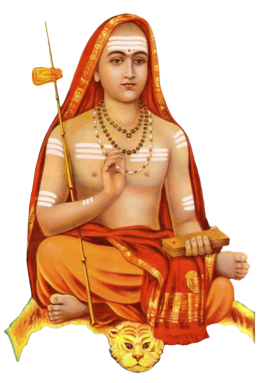
Other Sankara Shlokams
Achyutashtakam
Achyutashtakam, composed by Sri Adi Shankaracharya, is in praise of Lord Krishna. It is a simple yet wonderful hymn of eight stanzas comprising the names of lord Vishnu with main emphasis on his incar
Annapurna Stotram
Annapurna is the goddess of food and nourishment. She is a form of Parvati, the inseparable shakti of Lord Shiva. Anna is translated as "food" and "grains" and purna means "full" or "complete". Annapu
Aparokshānubhuti
Shlokams,Prakarana Grantha,Sankara
Aparokshanubhuti, or Direct Experience of the Absolute is an introductory work by Adi Shankaracharya that expounds Advaita Vedanta philosophy. The word means Self-Realization
Ashtavakra Gita Home
Shlokams,Prakarana Grantha,Sankara
The Ashtavakra Gita is an ancient Sanskrit scripture that presents a powerful conversation between the sage Ashtavakra and King Janaka on the nature of the Self, liberation, and ultimate truth. Unlike many other spiritual texts, it is remarkable for…
Ātmabōdha
Shlokams,Prakarana Grantha,Sankara
Atmabodha, meaning Self-knowledge or Self-awareness, is an exceptionally lucid and readable work of Shankaracharya. Consisting of sixty-eight verses or shlokas, it is in a sense a simple summary of his entire Vedantic structure of thought, intended,…
Ayigiri Nandini
The Mahishasura Mardini Stotram also known popularly as Aigiri Nandini, holds immense significance during Navratri. The word Mahisha means buffalo and Asura means Rakshasa or Demon. Composed by the great sage Adi Shankaracharya around 810 AD, this…
Ayigiri Nandini – Chanting – English
The Mahishasura Mardini Stotram also known popularly as Aigiri Nandini, holds immense significance during Navratri. The word Mahisha means buffalo and Asura means Rakshasa or Demon. Composed by the great sage Adi Shankaracharya around 810 AD, this…
Ayigiri Nandini – Chanting – Sanskrit
The Mahishasura Mardini Stotram also known popularly as Aigiri Nandini, holds immense significance during Navratri. The word Mahisha means buffalo and Asura means Rakshasa or Demon. Composed by the great sage Adi Shankaracharya around 810 AD, this…
Bhaja Govindam
Shlokams,Vishnu,Sankara,Govinda,Krishna,Prakarana Grantha
Bhaja Govindam is one of the most popular hymns penned by Adi Shankaracharya. He has packed into the Bhaja Govindam song the substance of all Vedanta, and set the oneness of Jnana and Bhakti to melodious music.
Bhavani Ashtakam
Composed by Sri Adi Shankaracharya. Bhavani Ashtakam is a popular hymn on Goddess Bhavani, who is known for her protection and merciful nature. The Lyrics of this hymn have an in-depth meaning that wh
Bilvashtakam
Composed by Sri Adi Shankaracharya, the famous Bilvashtakam extols the virtues of the Bilva leaf (also spelt Vilva, Bilwa) and Lord Shiva’s love for it. The following com
Bilvashtakam 14 Verses
Note: For the original version of Bilvashtakam please click here. Composed by Sri Adi Shankaracharya,
Brahmajnānavali Māla
Shlokams,Prakarana Grantha,Sankara
In this Prakarana Grantha (topical text or treatise) attributed to Sri Sankara the characteristics of the person who has realized that he is Brahman are described. The aspirant for liberation is advised to meditate on these in order to attain that…
Dakshinamurthy Stotram
Shlokams,Sankara,Shiva,Dakshinamurthy
The Dakshinamurti Stotra is a Sanskrit religious hymn to Shiva by Sri Adi Shankaracharya. It explains the metaphysics of the universe in the frame of the tradition of Advaita V
Dasa Shloki
Shlokams,Prakarana Grantha,Sankara
This composition in ten verses - dasha shloka - is similar to the Nirvana Shatakam, and like it, a summation, in typically Shankara's way, of the unyielding non-dual vision of Advaita. Here too, Shankara's attempt is to deny everything else only to…
Devi Aparadha Kshamapana Stotram
Composed by Sri Adi Shankaracharya. Aparadha Kshamapana stotram is usually recited after a recital or after the completion of Puja. Its like asking for forgiveness from Goddess for various mistakes th
Ganesha Pancharathnam
The composer, Guru Sri Adi Shankaracharya had praised the God Ganesha by presenting these five stanzas as five jewels, hence the name Maha Ganesha Pancharatnam.
Ganesha Stavah
Ganesha Stavah or Ganapati Stavah is a set of 13 verses that describe the glory of Lord Ganesha. Gaṇapati stavaḥ is said to be from Ganesh Purana - upāsanā khaṇḍa adhyāya 13.
Ganga Ashtakam
Gangashtakam is an octet on river Ganga composed by Shri Adi Shankaracharya.
Gangā stotram
Sri Adi Shankaracharya has written a song ”Devi Suresvari Bhagavati Gange” and the Official Name for this song is ”Sri Sri Ganga Stotram”. In this song Sree Shankaracharya describes the glories of Sri
Guru Ashtakam
The Guru Ashtakam is a Sanskrit hymn composed by Adi Shankaracharya, the 8th-century Indian philosopher and saint who consolidated the doctrine of Advaita Vedanta. In the Vedan
Guru Paduka Stotram
Guru Paduka Stotram is a very powerful chant that glorifies the "Padukas (Sandals) of the Guru," which are symbolically represented as "the boat to help cross the endless ocean
Hanuman Pancharatnam
Garland of five gems on Shri Hanuman composed by Shri Adi Shankaracarya.
Hastāmalakiyam
Shlokams,Prakarana Grantha,Sankara
Composed by Hastāmalaka Ācārya, a direct disciple of Adi Sankaracharya, the Hastāmalaka Stotraṁ or Hastāmalakiyam is a short Vedāntic text about the higher nature of the Self.
Ishavasya All Verses
Introduction to Isavasya Upanishad The Īśāvāsyopaniṣad—so called from its initial words—forms the concluding chapter of the Saṃhitā of the Suklayajurveda The name of
Ishavasya Upanishad
The Isha Upanishad is embedded as the final chapter of the Shukla Yajurveda and is one of the shortest Upanishads, with 18 verses. It is the very first Upanishad in the Muktika canon of 108 Upanishads.
Ishvaro Guru Atmeti
Shlokams,Shiva,Dakshinamurthy,Guru,Sankara
Salutations to Lord Dakshinamurti, who is all-pervasive like space but who appears (as though) divided as Lord, Guru, and the Self.
Jagannath Ashtakam
Shri Jagannath Ashtakam was composed by Adi Sankracharya in praise of Lord Jagannath on his visit to Puri. The merit of reciting the sacred Jagannath ashtakam carefully is such that, one becomes sinle
Kalabhairava Ashtakam
Composed by Sri Adi Shankaracharya. The hymn illustrates the personality of Kala Bhairava of Kashi, the God of Death(kala). Those who study these 8 verses on Kala Bhairava, which are enticing and whic
Kalika Ashtakam
The Kalika Ashtakam is a Sanskrit hymn of eight verses dedicated to Goddess Kali, the fierce and protective form of the Divine Mother. This devotional text focuses on Ka
Kamakshi Stotram
Composed by Sri Adi Shankaracharya. Goddess Kamakshi is a form of Tripura Sundari or Parvati or the universal mother goddess. The word is derived from the heritage “Ka” meaning Goddess Saraswati (Godd
Kanakadhara Stotram
Kanakadhara Stotram is a hymn (Stotra) composed in Sanskrit by Sri Adi Sankaracharya. Kanakadhara means “stream” (dhara) of “gold” (kanaka). The 21 stanzas of kanakadhārā stotram then became famous and are read by all devout Hindus for……
Kasi Viswanathashtakam
Composed by Sri Adi Sankaracharya in praise of Lord Shiva. That man who reads this octet with its meaning, which sings the praise of Shiva who is the lord of Varanasi, would get knowledge, wealth, gre
Katha Upanishad
The Katha Upanishad is embedded in the last 8 sections of the Krishna Yajurveda. It has two chapters divided into three Vallis each. It is a Mukhya upanishad and listed as #3 in the Muktika canon of 108 Upanishads.
Kathopanishad All Verses
The Katha Upanishad is a collection of philosophical poems representing a conversation between the sage Naciketas and Yama (god of death). They discuss the nature of Atman, Brahman and Moksha (liberation). The book is made up of six sections…
Kaupina Panchakam
Shlokams,Prakarana Grantha,Sankara
Kaupina Panchakam - This is a very short poem composed by Sri Adi Sankaracharya, with five stanzas that glorify the life of a Sannyasi. The Kaupina is made up of a rectangular strip of cotton cloth used to cover the genitals with the help of the…
Kena Upanishad
The Kena Upanishad is embedded inside the last section of the Talavakara Brahmanam of the Samaveda. It is a Mukhya upanishad and listed as #2 in the Muktika canon of 108 Upanishads.
Kenopanishad-All-Verses
The Kena Upanishad or Kenopanishad (Kenopaniṣat) (also known as the Talavakara Upanishad) elucidates the concept of nirguna (qualityless) Brah
Lakshmi Narasimha Karavalambam
Narasimha is a fierce avatar of the Hindu god Vishnu, one who incarnates in the form of part lion and part man to destroy evil and end religious persecution and calamity on Earth, thereby restoring Dh
Lalitha Panchakam
Composed by Sri Adi Shankaracharya in praise of mother Lalitha. The phalastuti of the stotram says the divine mother will give good knowledge, wealth, fame, happiness, fortune, and prosperity.
Lalitha Sahasranamam
Lalitha Sahasranamam is a sacred Hindu text from the Brahmanda Purana which lists the thousand names of the Hindu mother goddess Lalita Devi, a manifestation of the Divine Mother (Shakti), and is therefore used in the worship of Durga, Parvati,…
Mahishasura Mardini Storam
Mahishasura Mardini Stotram - This is a prayer to the Goddess who killed Mahishasura. “The place where Sri Mahishasura Mardini Stotram is sung every day, I will always be present and never leave.” - The Devi’s proclamation in the 12th chapter of the…
Mandukya Karika
The Mandukya Karika represents the first systematic philosophical exposition of Advaita Vedanta, transforming the concise twelve-verse Mandukya Upanishad into a comprehensive 215-verse treatise on non-dual philosophy.
Mandukya Upanishad All Verses
Mandukya Upanishad - A detailed Summary The Mandukya Upanishad is the shortest yet one of the most profound Upanishads, consisting of just 12 verses. It explores the n
Manishā Panchakam
Shlokams,Prakarana Grantha,Sankara
Adi Sankara’s ‘Manisha Panchakam’ refers to the conclusive wisdom or determinate knowledge asserted in five verses. Manisha means conclusive wisdom or determinate knowledge and Panchakam refers to the five verses.
Mauna Vyakhya
Shlokams,Sankara,Shiva,Dakshinamurthy
I salute Sri Dakshinamurti, who is not subject to time, who makes known the truth of Brahman through the implied meaning of words, who is surrounded by disciples who are themselves Rishis and committe
Meenakshi Pancharatnam
Meenakshi Pancharatnam (The five jewels of Meenakshi) is a popular stotram composed by Sri Adi Shankaracharya as a ritual incantation on goddess Meenakshi. This stotram explains the divine qualities,
Mundaka Upanishad
The Mundaka Upanishad is embedded is embedded in the Atharva Veda. It is a Mukhya upanishad and listed as #5 in the Muktika canon of 108 Upanishads.
Narmada Ashtakam
Composed by Sri Adi Shankaracharya in praise of river Narmada.
Nidhaye Sarvavidyanam
Shlokams,Sankara,Shiva,Dakshinamurthy
Salutations to Sri Dakshinamurti, the reservoir of knowledge (the abode of all learning), the healer of all those who suffer from the disease of samsāra, and the teacher of the whole world.
Nirvana Shatakam
Nirvana Shatkam (Atma Shatakam) of Adi Sankara Commentary and Notes Translated by S. N. Sastri Introduction: Sri Sankara Bhagavatpada has blessed poster
Om Namah Pranavarthaya
Shlokams,Sankara,Shiva,Dakshinamurthy
Om. Salutation to the one who is the meaning of praņava, who is in the form of pure knowledge, who is taintless and who is free from any change. To that Sri Dakshinamurti, (my) salutations.
Om Namo Bhagavate Dakshinamurthaye
Shlokams,Sankara,Shiva,Dakshinamurthy
Om. Salutations to Bhagavan Dakshinamurti. (Oh Lord) Bless me with memory, the capacity to think properly, and clarity, wisdom.
Pandurang Ashtakam
Shri Pandurang ashtakam (Pandurangashtakam) Stotra is a very beautiful creation of Shri Adi Shankaracharya. Lord Vithal, or Panduranga Vittala, is an incarnation of Lord Vishnu and is worshipped in t
Prashna Upanishad
The Prashna Upanishad is embedded is embedded in the Atharva Veda. It is a Mukhya upanishad and listed as #5 in the Muktika canon of 108 Upanishads.
Prashnopanishad-All-Verses
The Prashnopanishad (Prashna Upanishad) is a key philosophical text within the Indian spiritual tradition, part of the larger body of literature known as the Upanishads.
Prātah Smaranam
Pratah Smaranam is a prayer composed by Sri Adi Shankaracharya consisting of three stanzas in which the mind (manas) speech (vak), and body (kaya) of the individual are
Ranganatha Ashtakam
Ranganatha Ashtakam was written by Adi Sankara Bhagavatpada when he stood before Sri Ranganatha swamy in Srirangam, during his travels. This Ashtakam reveals that Adi Sankara was overwhelmed by Lord R
Sādhana Panchakam
Shlokams,Prakarana Grantha,Sankara
Sadhana Panchakam - Adi Sankara in these five simple looking verses lovingly lists the ways and means which can readily be followed by all students of Vedanta, seeking direct experience of the divine state beyond the mind, the spring of…
Sankaram Sankaracharyam
Salutations again and again to Lord Shiva in the form of Sri Sankaracharya and Lord Vishnu in the form of Veda Vyasa, who were the authors of sutra and bhasya.
Saundarya Lahari
Shlokams,Prakarana Grantha,Sankara
The Saundarya Lahari, a devotional poem of one hundred hymns, is ascribed to the great teacher Shankaracharya. The poem is divided into two parts; the first part, comprised of verses 1 through 41, is called the Anandalahari, or Wave of Bliss, and…
Sharada Bhujangam
Composed by Sri Adi Shankaracharya on devi Sharada. Sringeri is the first math (monastery) built by Sri Adi Shankaracharya. It has the famous temple of Devi Sharada inside it. The math is situated on
Shiva Aparadha Kshamapana Stotram
The Śiva Aparādha Kṣamāpaṇa Stotram, or "Hymn of Forgiveness for Offenses to Lord Śiva," is a heartfelt composition by the revered philosopher and saint Śrī Ādi Śaṅkarācārya. T
Shiva Ashtakam
Composed by Adi Shankaracharya. This ashtakam is a descriptive salutation of the different attributes of Shiva. The great yogi who is referred to as Ardhanarishwara (the one who has included the femin
Shiva Manasa Puja
Sri Adi Shankaracharya composed this mantra for lord Shiva. Using this stotra, we can perform mental worship of Lord Shiva.
Shiva Pratah Smaranam
This is a short and beautiful 'Three Shloka Prayer' that makes the start of the day full of energy and happiness. Composed by Sri Adi Shankaracharya.
Soundarya Lahari All Verses
Soundarya Lahari, meaning "Waves of Beauty," is a revered Sanskrit literary work attributed to Adi Shankaracharya, the great philosopher and theologian who consolidated the doctrine of Advaita Vedanta in the 8th century. This composition is not just…
Sruti Smrti
I bow at the feet of the Lord in the form Sri Sankaracharya, who is the blessing for the humanity, who is the shrine for the sruti, the smrti and the purana, and, who is the abode of compassion.
Subramanya Bhujangam
Sri Subramanya bhujangam is a stotra sung under inspiration by Sri Adi Shankaracharya at Thiruchendur ( presently located in Tamil Nadu, India). When he meditated upon SrI Subrahmanya, he became aware
Taittiriya Upanishad
The Taittiriya Upanishad is one of the primary Upanishads, as part of the Yajur Veda. It says that the highest goal is to know the Brahman, for that is Truth. It is divided into three sections, 1) the Siksha Valli, 2) the Brahmananda Valli and 3)…
Tattvabodha
Shlokams,Prakarana Grantha,Sankara
For anyone wishing to understand the essential tenets of Shankaracharya's philosophy and the Advaita vision, the Tattvabodha, which broadly translates to the 'knowledge of truth', is mandatory reading. In it, Shankara, as the teacher, puts down the…
Totakashtakam
The Toṭakāṣṭakam was composed by Giri (an enlightened disciple) in praise of his Guru Adi Sankara. Literally, it means a rhyme of eight (Sanskrit: aṣṭa) verses (ślokas) in the meter called Totaka.
Vākya Vritti
Shlokams,Prakarana Grantha,Sankara
Of the four Mahāvākyas, the statement containing the entire instruction of the teacher is 'Tat Tvam Asi' or 'That Thou Art'. Exposition of this pithy but pregnant sentence (vākya), is accomplished by Adi Sankara in a collection of 53 verses called…
Vedasara Shiva Stava
Vedasara Shiva Stava: The Essence of Vedic Wisdom The Vedasara Shiva Stava is a beautiful 10-verse hymn written by Adi Shankaracharya in praise of Lord Shiva. The name
Vishnu Shatpadi Stotram
The Sri Vishnu Shatpadi is a revered Sanskrit stotra (hymn) dedicated to Lord Vishnu, the preserver and protector in Hinduism. Composed by the illustrious philosopher and saint, Sri Shankaracharya, this hymn comprises six verses (ṣaṭpadī) that…
Vivekachudamani
Shlokams,Prakarana Grantha,Sankara
The Vivekachudamani is the crown jewel of the Prarkarana texts (philosophical treatises) authored by Sri Adi Sankaracharya. The title translates to ‘Crest Jewel of Discrimination’, referring to the discrimination between the real and unreal.
Yamuna Ashtakam
Composed by Sri Adi Shankaracharya. In Yamunastakam’s first eight shlokas, Sri Adi Shankaracharya describes Shri Yamunaji’s eight fold powers, its divine & wonderful idol and her divine qualities. Shr
Atmabodha All Verses – Sankara – In Sanskrit, English Translation, Meaning, Significance and Audio.

